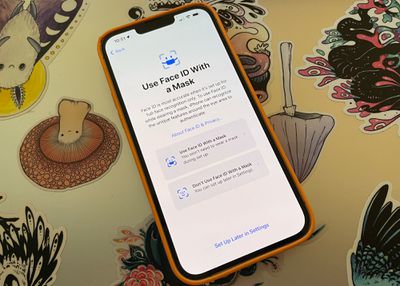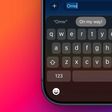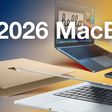Apple yesterday released the first developers beta of iOS 15.4 with several notable new features. Perhaps the biggest is the ability to use Face ID to unlock your iPhone while wearing a mask, without requiring an Apple Watch to do so. In another noteworthy addition, you can now also authenticate Apple Pay transactions while wearing a mask for the first time.

With the release of iOS 14.5 and watchOS 7.4 last year, Apple added the ability for users wearing a mask to unlock their iPhone when wearing an Apple Watch, eliminating the need to enter a passcode instead. However, while "Unlock with Apple Watch" allows users to unlock their device while wearing a mask, other features that rely on Face ID, such as Apple Pay and in-app authentication, do not work.
That will change when iOS 15.4 is released to the public, after which users will also be able to make Apple Pay purchases and use Face ID within apps when wearing a face covering. That said, Apple is warning that using Face ID with a mask is less secure, and the biometric authentication system remains "most accurate" when used with full-face recognition.
To enable Face ID while wearing a mask, an iPhone "can recognize the unique features around the eye area to authenticate," according to Apple. The feature in the first beta is limited only to the iPhone 12 and later, meaning users of older iPhone models will miss out. Alongside Face ID with a mask, Apple has also added the ability to configure Face ID while wearing glasses.
iOS and iPadOS 15.4 are likely to be released to the public later this Spring and include new emojis, an Apple Card widget, Universal Control, and more. Check out everything new in the first beta with our roundup.


















